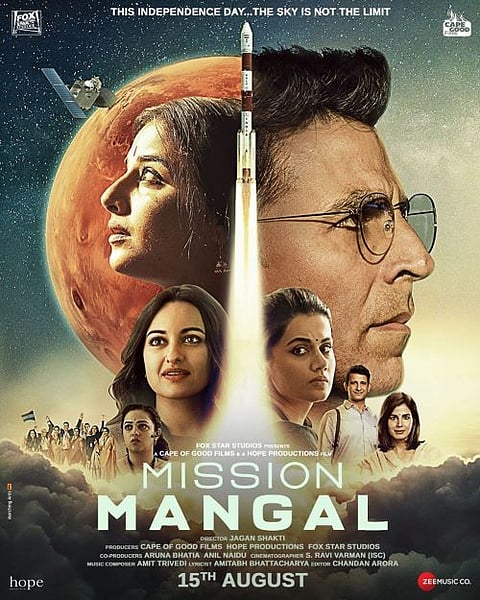From ‘Mother India’ to ‘Mission Mangal’
Jagan Shakti's 2019 film Mission Mangal endorses a brand of theatrical nationalism meant to appeal to a nation – encouraged by a Prime Minister with a penchant for performativity – that is looking for 'big bang' moments in history: visually and narratively spectacular events that are discursively produced as radical points of departure from an inadequate past. Mission Mangal reproduces Indian Space Research Organisation's (ISRO) Mars Orbiter Mission – which marks the country's first interplanetary expedition – as a similar 'big bang' moment, one that is meant to herald a new era of technological self-sufficiency and development and consequently, an elevated sense of national pride.
Mission Mangal follows several films, such as Kesari (2019), Uri: The Surgical Strike (2019), Parmanu: The Story of Pokhran (2018), Gold (2018) and The Ghazi Attack (2017) that conform to a trend of aggressive nationalism that has enthralled popular Hindi cinema – and political discourse – in recent times. But it is also a reminder that Hindi cinema has historically been implicated in the task of reproducing a particular mythos around Indian nationhood. In each era, Hindi films have identified the most popular contemporary idiom of Indian nationhood, and altered their ideological thrust to orbit around it.

